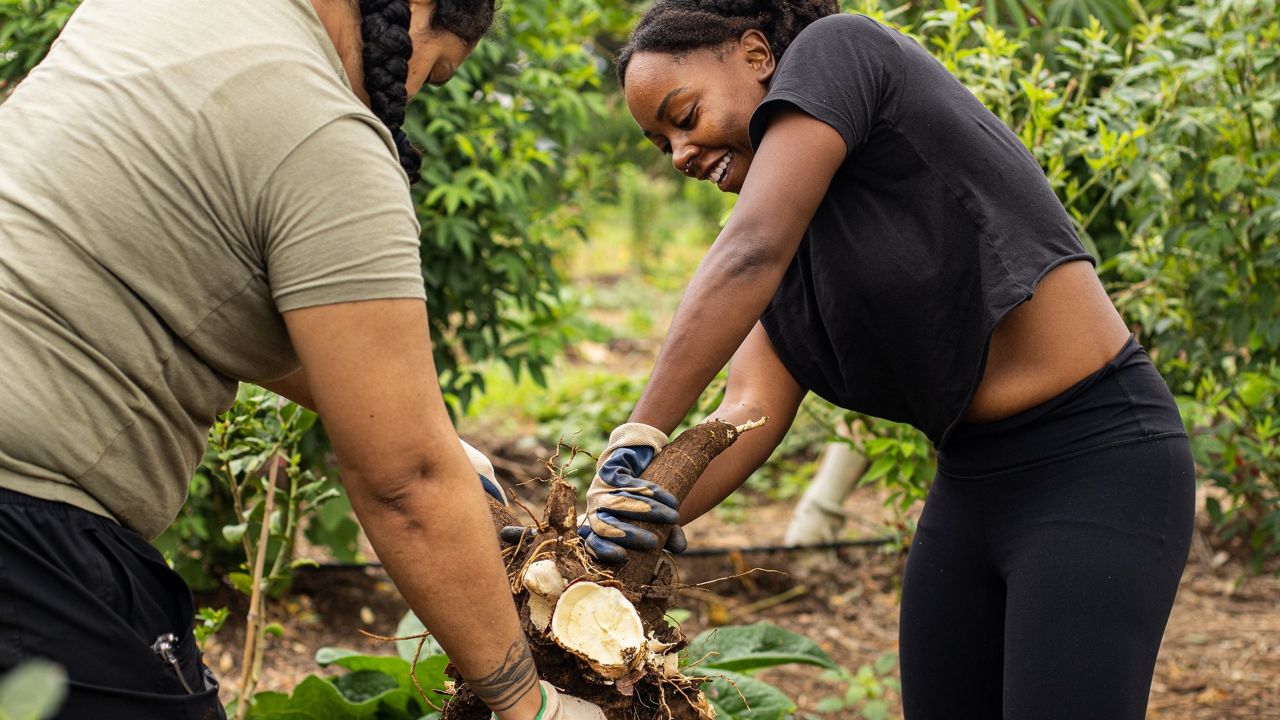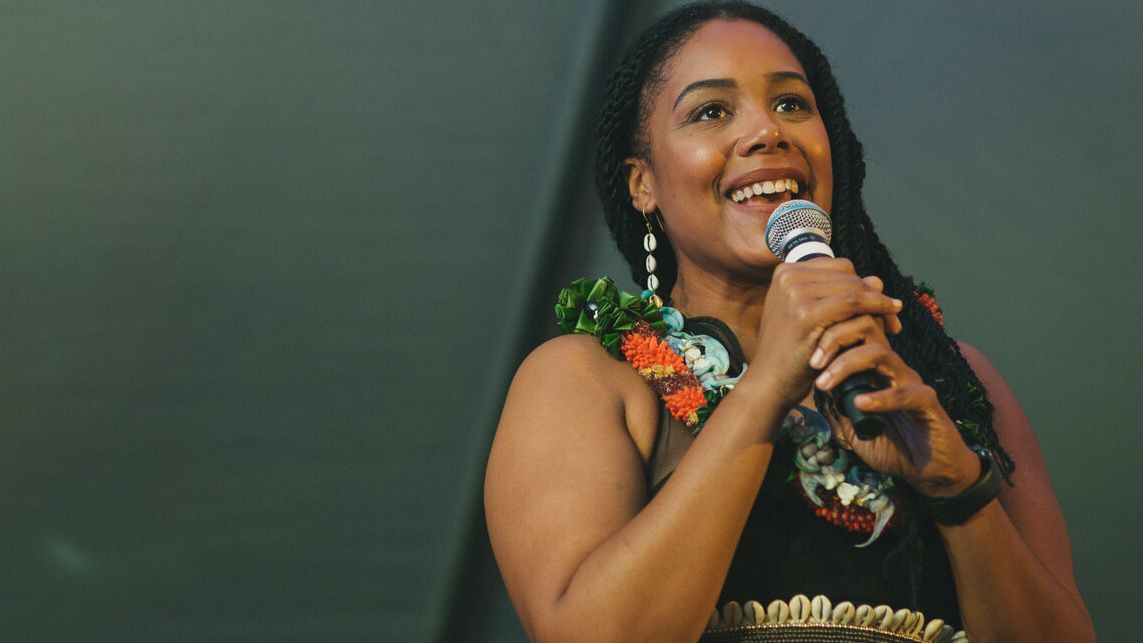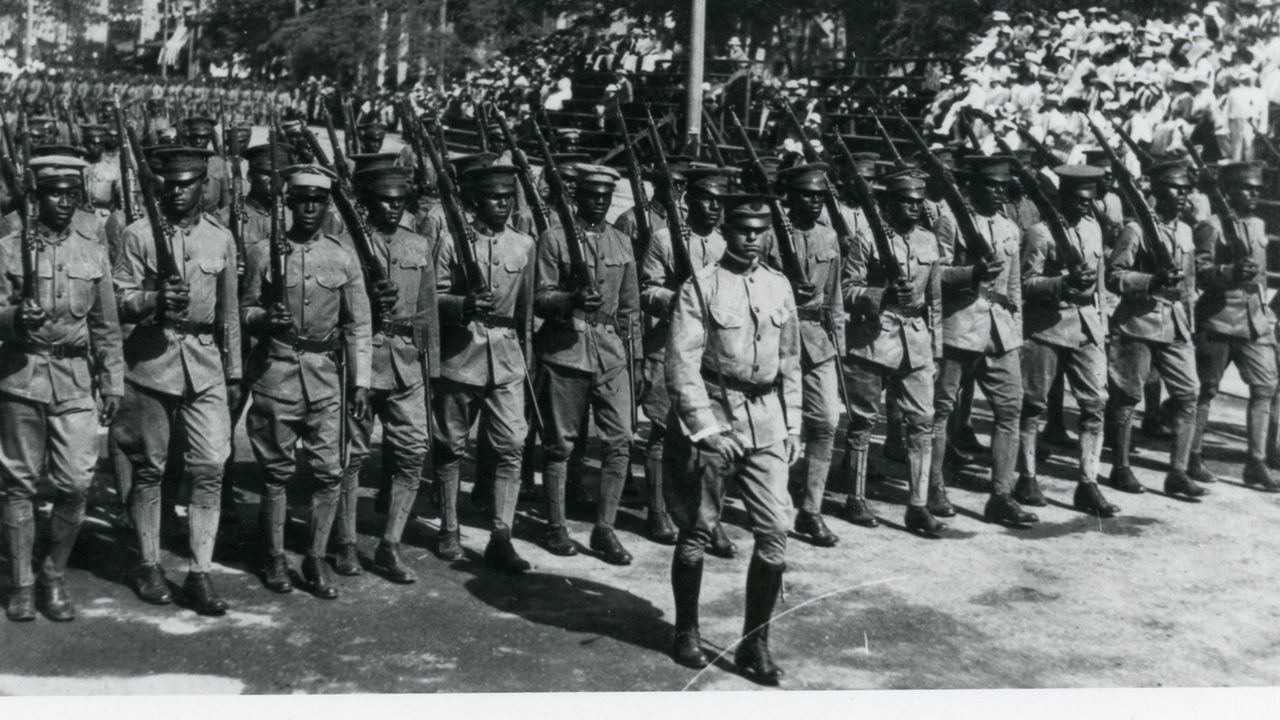The seed for the Pōpolo Project, a nonprofit that brings Hawaii’s Black community together, was planted in 2009 when Akiemi Glenn was a graduate student at the University of Hawaii at Manoa.
As she worked with people in Hawaii on her dissertation, she noticed there were a lot of misconceptions about her as a Black person. She also found she wasn’t interacting with a lot of other Black students.
About 275 Black students attend UH Manoa, which is 1.5% of the student body. Across the state, 46,783 people identify as Black, which is 3.2% of the population.
“One of the ways for me to work through this experience of feeling somewhat isolated and misrepresented … was for me to find out: What are the experiences of other Black people who are from Hawaii or have otherwise made Hawaii their home?” said Glenn.
Originally, the Pōpolo Project started as a blog, where Glenn would publish interviews she conducted with Black people in Hawaii about their history and experiences.
She said answers to “How did Hawaii become your home?” ranged from my great-great-grandparents came to Hawaii from Louisiana to I moved to Hawaii a few years ago.
As she interviewed more Black people in Hawaii, she noticed some patterns. The first was that her interviewees expressed feeling like “perpetual foreigners” even though some came from families who had been in Hawaii for generations or were both Black and Native Hawaiian.
The second was that many Black people in Hawaii were navigating in their daily lives stereotypes that came from inaccurate representations of Black culture in media.
Lastly, Black people in Hawaii were looking for community.
With all that in mind, she started the Pōpolo Project, and many of the people she interviewed for the blog helped her.
Glenn said some people only knew the Hawaiian word “pōpolo” as “a negative reference to Black people in Hawaii.” Pōpolo is a nightshade plant with black berries, used by Hawaiians for its medicinal properties. But during the late 19th century or early 20th century, pōpolo was used as a euphemism for people of African descent. However, Glenn hopes by using the plant’s name as part of the nonprofit’s moniker that it will re-contextualize the word.
“One of the reasons we've chosen to … lean into the tension with a word like pōpolo and its history, is because it does refer to something healing,” said Glenn. “And something that is specific to Hawaii.”
Since starting in 2017, the nonprofit has held many events and consulted on cultural projects, including the ongoing Honolulu African American Film Festival. However, she said the primary aim of the Pōpolo Project is to connect Black people in Hawaii to one another.
“We’ve been doing programming, trying to host critical conversations to move the ways that we talk about race and belonging here in Hawaii into new spaces, but also to just be visible for each other,” said Glenn.

In honor of Black History Month, the Pōpolo Project is hosting its annual Community Work Day at Kokua Learning Farm in Haleiwa on Feb. 24 from 9 a.m. to 11 a.m. The nonprofit asks anyone interested in attending to RSVP.
“One of the things that we do with Kokua (Learning Farm) folks is think about the ways that African diaspora food and plant culture has come to Hawaii, and give our community a way to connect to that,” said Glenn.
One example is the gourd, better known as the ipu, brought by seed in the canoes of the Polynesians who first came to Hawaii, which was used as a water bottle, a bowl to store fish, or a canoe bailer. The plant is native to tropical Asia and Africa.

The Pōpolo Project is also working on a documentary film, which explores connections between Hawaii and African diaspora cultures, by following the story of falsetto musician Ryan Kamakakēhau Fernandez. A Hawaiian woman adopted Fernandez when he was a baby, raising him on Maui, where he learned about Hawaiian language and music. When his adoptive mother died in 2019, he felt a desire to learn more about his own history. The documentary will follow him as he travels to his birthplace in Little Rock, Arkansas and to Ghana, where many of his ancestors came from.
In recent years, Glenn said she has noticed more people in Hawaii embracing their African heritage. While she doesn’t think the Pōpolo Project can take all the credit, she is glad to see more businesses and individuals celebrating Black History Month, recognizing Hawaii’s Black historical figures, and learning about their own ancestors of African descent.
Michelle Broder Van Dyke covers the Hawaiian Islands for Spectrum News Hawaii. Email her at michelle.brodervandyke@charter.com.






